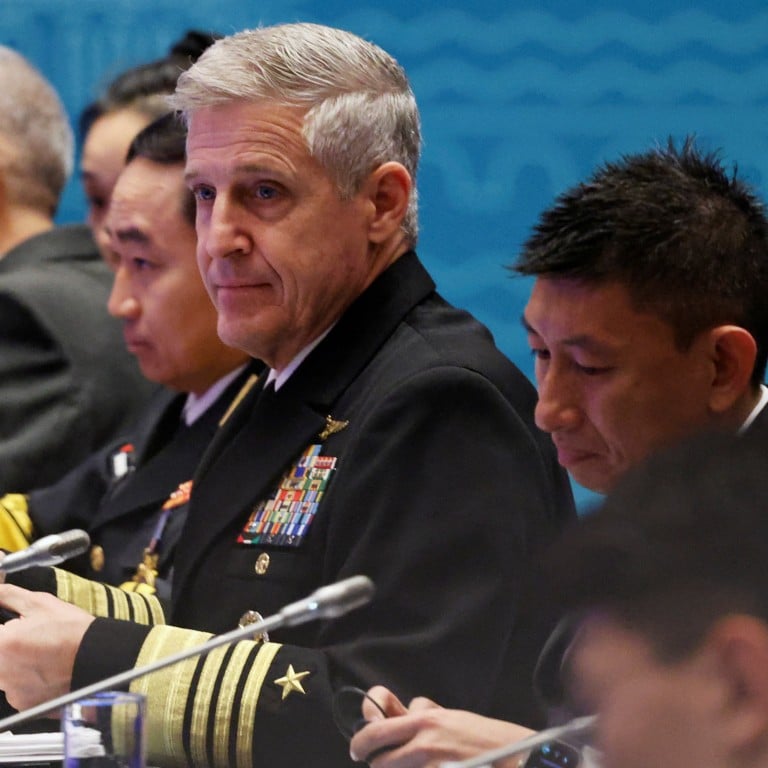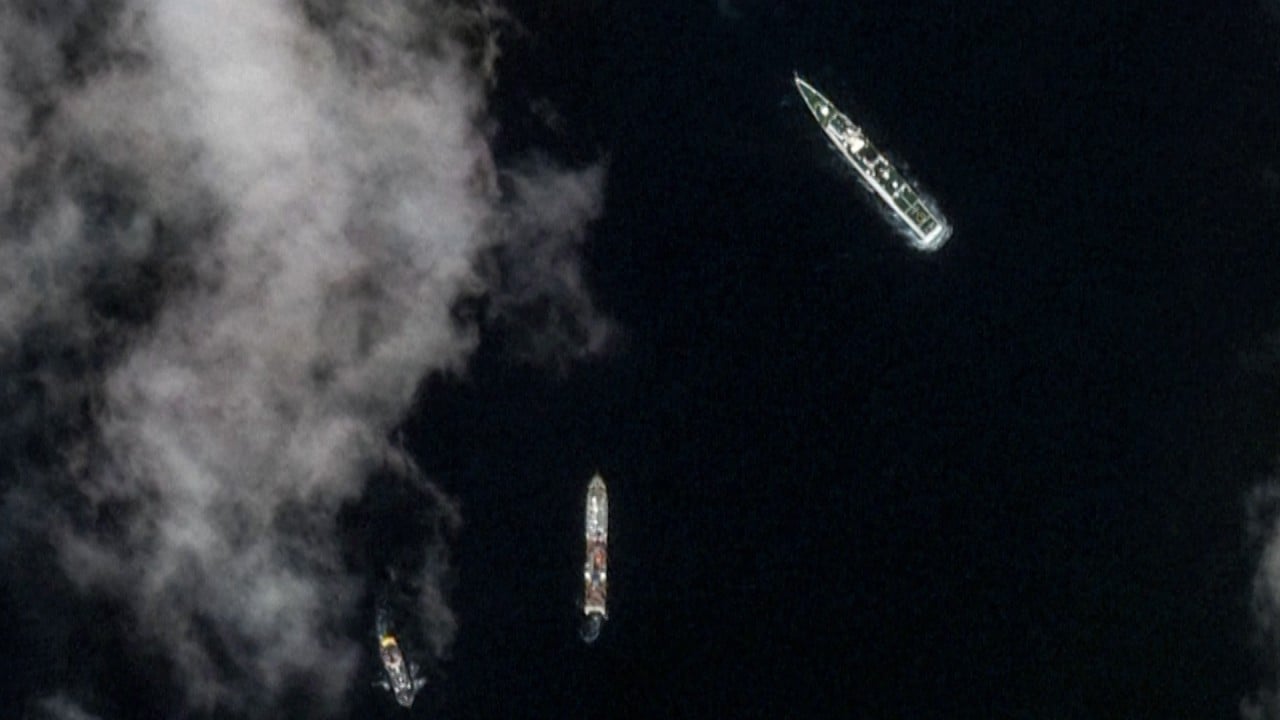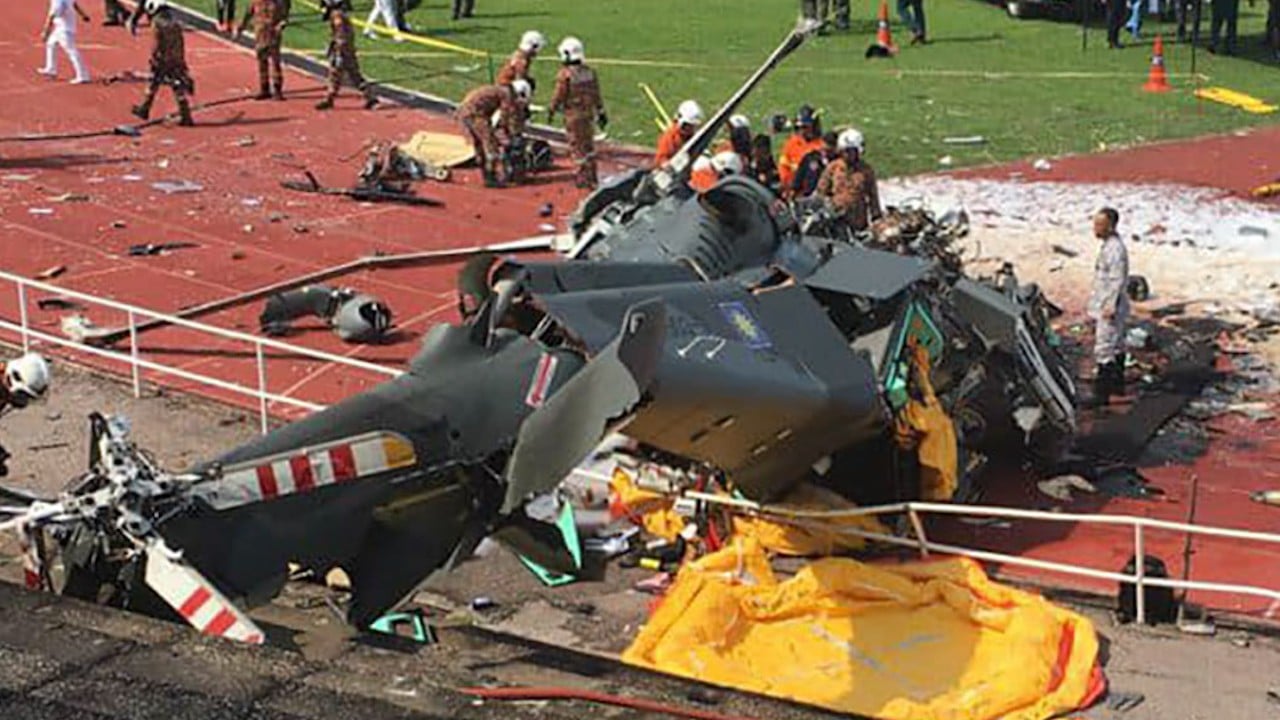
South China Sea: amid tension, US and Chinese navy chiefs discuss ‘increasing security challenges in Indo-Pacific’
- While Philippines was absent from forum, members passed updated Code for Unplanned Encounters at Sea, a non-binding multilateral agreement
- Chinese navy commander Hu Zhongming called for close communication and stronger coordination between naval forces of member countries
US and Chinese navy chiefs have met for talks during a naval forum in northeast China amid tensions in the South China Sea.
Koehler met Yuan to discuss “increasing security challenges in the Indo-Pacific”, according to a statement from the US Pacific Fleet which provides naval forces to the Indo-Pacific Command.
Two days earlier, Koehler had met the commander of China’s navy, Admiral Hu Zhongming, according to the statement.
In meetings with Chinese PLA officials, Koehler discussed the importance of maintaining open lines of communication, operational safety and regional security concerns, it said.
The meetings took place on the sidelines of a symposium hosted by China and attended by 29 countries, notably including representatives from Russia and the US, which did not have any bilateral interactions, according to publicly available information.
The full text of the document has not been made public.
Alexander Moiseyev, commander-in-chief of the Russian Navy who led his country’s delegation to the event, also held talks with China’s navy commander Hu, Tass reported on Sunday.
The two sides signed a memorandum of understanding and cooperation in maritime search and rescue operations and both stressed the importance of developing cooperation between their navies “in the interests of security and stability”, Tass said citing Russia’s defence ministry.
The forum started on Sunday and took place against a backdrop of intensified clashes between China and the Philippines in the South China Sea where they have overlapping territorial claims. Tensions are also running high in the Taiwan Strait and the East China Sea.
The forum established a “research working group on unmanned systems” with China as the coordinating country, a statement from China’s defence ministry on Tuesday said, although it offered no further details.
During the forum on Tuesday, Hu called for “close communication” and “strengthened coordination” between the naval forces of countries taking part, according to China’s defence ministry.
He called on the navies of all countries to “engage in dialogue rather than confrontation, to engage in exchanges rather than becoming hostile … and to add bricks rather than chaos”.



